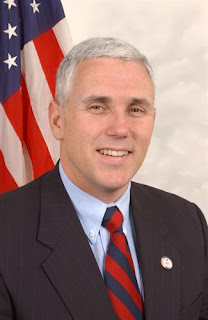In the run-up to the war the United States is waging against the forces of Libyan leader Moammar Gadhafi, the drumbeat for this fight was a call for action to stop the dictator from committing atrocities against his own people.
“When the entire international community almost unanimously says that there is a potential humanitarian crisis about to take place, we can’t simply stand by we have to take some sort of action,” President Obama told reporters during his recent trip to Chile.
“This guy’s days are numbered,” Sen. John McCain, R-Ariz., said before American Tomahawk missiles rained down on Libya ’s air defenses. The question is can we shorten them even more “to save people’s lives because it’s clear he is going to kill whoever he thinks he can in order to stay in power,” the GOP’s 2008 presidential nominee said of Gadhafi.

And when the United Nations Security Council voted to authorize the imposition of a no-fly zone over Libyan airspace, it was acting, it said, “to protect civilians and civilian-populated areas under threat of attack” from Gadhafi’s forces, which had killed hundreds of people in its attempt to end anti-government demonstrations.
But when it comes to using America ’s military might to protect innocents, the Obama administration needs to explain why it has chosen to do so in the North African nation of Libya , while disavowing it in the Ivory Coast , a sub-Sahara African nation where a greater “potential humanitarian crisis” is unfolding.
Nearly 500 people have been killed by forces loyal to Laurent Gbagbo, the Ivory Coast president who lost a re-election bid in November but refuses to give up control. Many more people have been wounded in the fighting spawned by Gbagbo’s refusal to leave office. An estimated 500,000 have been displaced, and 90,000 more have fled the West African country, according to the Associated Press.

Recently, Gbagbo’s forces began attacking immigrants from neighboring African countries whose governments have refused to recognize his illegitimate regime. Some have been the victims of necklacing — a brutal practice in which a car tire filled with gasoline is forced over a person’s body and then ignited. When a group of unarmed women marched to protest Gbagbo’s power grab, an army tank fired upon them.
The violence in the Ivory Coast, a nation of nearly 22 million people, threatens to become a far bigger humanitarian crisis than the one the U.S. and its allies went to war to prevent in Libya, which has slightly less than 7 million people. But instead of threatening to use its military might to end the butchery in the Ivory Coast, the Obama administration says it “remains committed to finding a peaceful resolution” to that crisis.
“I don’t see a double standard; I think the U.S. is concerned about the Ivory Coast . I think it just wants the African Union to step up first,” said Melvin Foote, president of the Constituency for Africa, a Washington-based organization that works to build support for African causes in the United States .
He doesn’t, but I do.
In December, the African Union stepped up when it suspended the Ivory Coast from membership in the 53-nation organization after Gbagbo refused to accept the election results. He responded by ordering U.N. and French peacekeepers to leave to country and by imposing his own no-fly zone: He refused to let planes from the world body and France land in the Ivory Coast , while his forces wratched up attacks on his opponents.
If preventing a humanitarian crisis is the tripwire for American intervention, then U.S. Tomahawk missiles and war planes should have pummeled targets in the Ivory Coast long before they entered Libyan airspace.



